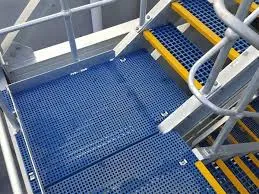
-
 Afrikaans
Afrikaans -
 Albanian
Albanian -
 Amharic
Amharic -
 Arabic
Arabic -
 Armenian
Armenian -
 Azerbaijani
Azerbaijani -
 Basque
Basque -
 Belarusian
Belarusian -
 Bengali
Bengali -
 Bosnian
Bosnian -
 Bulgarian
Bulgarian -
 Catalan
Catalan -
 Cebuano
Cebuano -
 China
China -
 China (Taiwan)
China (Taiwan) -
 Corsican
Corsican -
 Croatian
Croatian -
 Czech
Czech -
 Danish
Danish -
 Dutch
Dutch -
 English
English -
 Esperanto
Esperanto -
 Estonian
Estonian -
 Finnish
Finnish -
 French
French -
 Frisian
Frisian -
 Galician
Galician -
 Georgian
Georgian -
 German
German -
 Greek
Greek -
 Gujarati
Gujarati -
 Haitian Creole
Haitian Creole -
 hausa
hausa -
 hawaiian
hawaiian -
 Hebrew
Hebrew -
 Hindi
Hindi -
 Miao
Miao -
 Hungarian
Hungarian -
 Icelandic
Icelandic -
 igbo
igbo -
 Indonesian
Indonesian -
 irish
irish -
 Italian
Italian -
 Japanese
Japanese -
 Javanese
Javanese -
 Kannada
Kannada -
 kazakh
kazakh -
 Khmer
Khmer -
 Rwandese
Rwandese -
 Korean
Korean -
 Kurdish
Kurdish -
 Kyrgyz
Kyrgyz -
 Lao
Lao -
 Latin
Latin -
 Latvian
Latvian -
 Lithuanian
Lithuanian -
 Luxembourgish
Luxembourgish -
 Macedonian
Macedonian -
 Malgashi
Malgashi -
 Malay
Malay -
 Malayalam
Malayalam -
 Maltese
Maltese -
 Maori
Maori -
 Marathi
Marathi -
 Mongolian
Mongolian -
 Myanmar
Myanmar -
 Nepali
Nepali -
 Norwegian
Norwegian -
 Norwegian
Norwegian -
 Occitan
Occitan -
 Pashto
Pashto -
 Persian
Persian -
 Polish
Polish -
 Portuguese
Portuguese -
 Punjabi
Punjabi -
 Romanian
Romanian -
 Russian
Russian -
 Samoan
Samoan -
 Scottish Gaelic
Scottish Gaelic -
 Serbian
Serbian -
 Sesotho
Sesotho -
 Shona
Shona -
 Sindhi
Sindhi -
 Sinhala
Sinhala -
 Slovak
Slovak -
 Slovenian
Slovenian -
 Somali
Somali -
 Spanish
Spanish -
 Sundanese
Sundanese -
 Swahili
Swahili -
 Swedish
Swedish -
 Tagalog
Tagalog -
 Tajik
Tajik -
 Tamil
Tamil -
 Tatar
Tatar -
 Telugu
Telugu -
 Thai
Thai -
 Turkish
Turkish -
 Turkmen
Turkmen -
 Ukrainian
Ukrainian -
 Urdu
Urdu -
 Uighur
Uighur -
 Uzbek
Uzbek -
 Vietnamese
Vietnamese -
 Welsh
Welsh -
 Bantu
Bantu -
 Yiddish
Yiddish -
 Yoruba
Yoruba -
 Zulu
Zulu
FRP Tank Solutions for Safe and Efficient Transportation of Liquids
Understanding FRP Transport Tanks A Guide to Fiber Reinforced Polymer Solutions
In industries ranging from chemicals to food processing, the safe and efficient transport of liquids is paramount. Fiber Reinforced Polymer (FRP) transport tanks have emerged as a leading solution, offering numerous benefits over traditional materials such as metal or concrete. This article delves into the advantages, applications, and considerations of FRP transport tanks.
What is FRP?
FRP, or Fiber Reinforced Polymer, is a composite material composed of a polymer matrix reinforced with fibers, typically glass, carbon, or aramid. This combination results in a lightweight yet highly durable material that can withstand harsh environmental conditions, making it ideal for transport tanks.
Key Benefits
1. Corrosion Resistance One of the most significant advantages of FRP transport tanks is their resistance to corrosion. Unlike metal tanks that can rust or corrode over time, FRP tanks are impervious to many chemicals, making them suitable for hazardous materials and aggressive chemicals.
2. Lightweight and Strong FRP tanks are much lighter than their metal counterparts. This lightweight nature not only facilitates easier transportation and handling but also reduces the structural load on support systems, such as trailers or platforms.
3. Customizable Designs FRP can be molded into various shapes and sizes, allowing for highly customizable tank designs. This adaptability enables industries to meet specific storage and transport needs without compromising on safety and efficiency.
frp transport tank

4. Insulation Properties FRP offers excellent thermal insulation, which is particularly beneficial for transporting temperature-sensitive liquids. This insulation can help maintain the integrity of the contents during transit, reducing spoilage and ensuring quality.
5. Reduced Maintenance Due to their durable nature and resistance to corrosion, FRP tanks require less maintenance and have a longer lifespan compared to traditional materials. This reduces operational costs in the long run.
Applications
FRP transport tanks are widely used across various sectors. In the chemical industry, they are ideal for storing and transporting acids, bases, and oily liquids. The food and beverage sector benefits from FRP tanks for storing syrups, oils, and other liquids that require strict hygiene standards. Additionally, the water treatment industry utilizes FRP tanks for chemical storage due to their superior resistance to harsh chemicals used in water purification processes.
Considerations
While FRP transport tanks offer numerous benefits, there are considerations to take into account. For example, the initial purchase cost can be higher than traditional tanks. However, the long-term savings from reduced maintenance and durability often outweigh these initial expenses. Additionally, organizations should ensure compliance with industry standards and regulations when implementing FRP solutions.
Conclusion
FRP transport tanks represent a significant advancement in the safe and efficient transport of liquids across various industries. With their corrosion resistance, lightweight properties, and customizable designs, these tanks provide an effective solution that addresses many challenges faced in liquid transport. As industries continue to seek reliable and cost-effective solutions, FRP transport tanks will undoubtedly play a pivotal role in their operational success.
Latest news
-
Exploring the Benefits of Top Hammer Drifter Rods for Enhanced Drilling PerformanceNewsJun.10,2025
-
High-Precision Fiberglass Winding Machine for GRP/FRP Pipe Production – Reliable & Efficient SolutionsNewsJun.10,2025
-
FRP Pipes & Fittings for Shipbuilding - Corrosion-Resistant & LightweightNewsJun.09,2025
-
Premium FRP Flooring Solutions Durable & Slip-ResistantNewsJun.09,2025
-
Premium Fiberglass Rectangular Tanks Durable & Lightweight SolutionNewsJun.09,2025
-
Tapered Drill String Design Guide Durable Performance & UsesNewsJun.09,2025









